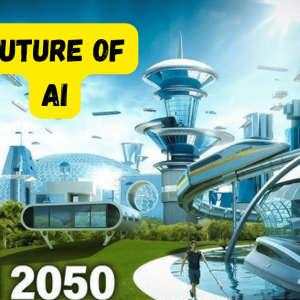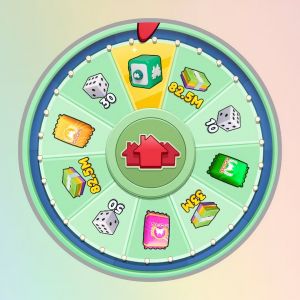The Rise of Digital Platforms in Music
The global music landscape has undergone a massive transformation with the advent of digital platforms. Artists are no longer reliant solely on record labels or physical album sales to reach their audience. Instead, music apps have created a direct connection between creators and fans worldwide. This accessibility has removed traditional barriers, allowing both established musicians and newcomers to showcase their talent to a global audience with ease and efficiency.
Direct Access to Global Audiences
Before the rise of mobile technology, artists struggled to share their work beyond their immediate local markets. Now, music apps serve as global stages, making it possible for creators from different backgrounds to distribute their work worldwide instantly. Whether an emerging singer from a small town or an independent DJ producing beats from home, these platforms provide visibility and growth opportunities. Such access would have been unimaginable just a decade ago.
Monetization Beyond Traditional Models
Earnings in the past were largely tied to album sales or live performances, but music apps have changed this equation. Subscription models, streaming royalties, in-app purchases, and even digital concerts are now reliable income sources. For creators, this diversification reduces reliance on a single revenue stream. By engaging with digital platforms, artists can monetize their passion sustainably, ensuring their careers are not solely dependent on one avenue of income like touring or physical sales.
The Role of Analytics in Creative Growth
Music apps do more than stream songs—they provide data insights. Creators can analyze listener behaviors, track performance, and understand demographics. This information allows musicians to tailor their content, marketing strategies, and even collaborations. For example, identifying which tracks are trending in specific regions helps artists target future promotions or tours effectively. Such data-driven strategies were previously limited to big record companies, but now even independent artists benefit.
Empowering Independent Artists
Perhaps the most notable contribution of music apps is the empowerment of independent creators. Without needing a major label contract, many artists have gained fame and financial success solely through digital platforms. Apps level the playing field, ensuring talent and creativity speak louder than marketing budgets. From uploading music to reaching millions of users worldwide, the journey is now more accessible, inspiring countless artists to take the leap into self-publishing and entrepreneurship.
Social Integration and Fan Engagement
Beyond listening, music apps now emphasize interaction. Features like playlists, sharing options, and comment sections allow fans to connect with creators directly. Some apps even support live sessions or fan clubs, providing artists with closer relationships with their audience. This social element transforms fans into loyal communities, building stronger bonds that extend beyond music itself. Engaged communities also translate into better support for concerts, merchandise, and crowdfunding campaigns.
Personalized Listener Experiences
AI-driven personalization has made music apps more effective in connecting artists with fans. By recommending tracks based on user preferences, apps help creators find audiences that truly resonate with their style. This level of personalization was impossible with traditional broadcasting channels. For artists, it means reaching listeners who are more likely to engage, share, and become lifelong supporters. These connections ensure that music apps not only distribute but also amplify artists’ creative impact.
Collaborations Across Borders
Music has always been a universal language, but apps have accelerated cross-border collaborations. Artists from different countries can now easily connect, share files, and release collaborative tracks to global audiences. This has enriched the diversity of music, blending genres and cultures seamlessly. By removing geographic limitations, apps empower creators to innovate, explore fresh sounds, and tap into international fan bases, giving rise to unique opportunities for both exposure and cultural exchange.
New Avenues for Creative Marketing
Digital platforms provide artists with tools to market their music beyond traditional advertising. Social media integration, influencer collaborations, and app-exclusive promotions have changed how music is consumed. Many artists release teaser clips or app-only content to spark curiosity. This not only boosts engagement but also generates anticipation for larger projects like albums or tours. Such creative marketing strategies give artists a competitive edge in an increasingly crowded entertainment space.
The Role of Developers in Music Apps
Behind every successful music platform are skilled professionals building these digital experiences. Music App Developers play a vital role in designing apps that balance functionality, scalability, and user experience. Their expertise ensures smooth streaming, strong personalization features, and interactive tools that empower creators to showcase their work effectively. Developers essentially form the backbone of the digital music revolution, enabling artists to thrive in an increasingly mobile-driven world.
Building Stronger Business Models
The shift toward apps has also introduced sustainable business models for both creators and the industry at large. Subscription-based revenue, advertisement partnerships, and exclusive artist deals make these platforms profitable while still benefiting creators. By offering multiple income opportunities and global exposure, music apps strengthen the overall music economy. For artists, this means more stability, fairer compensation, and better chances of sustaining long-term careers without compromise.
The Importance of Dedicated Companies
The music industry’s digital transformation requires specialized expertise. A leading Music App Development Company plays an essential role by providing customized solutions tailored to the needs of musicians, labels, and businesses. These companies develop advanced platforms equipped with analytics, streaming technology, and engagement features. Their innovations not only support artists but also push the boundaries of how fans experience music in an ever-evolving digital environment.
Expanding Reach Through Emerging Tech
Beyond traditional features, music apps are increasingly integrating advanced technologies such as AI, AR, and VR. Virtual reality concerts, AI-driven songwriting assistants, and interactive fan events are shaping the future of music consumption. For artists, this expansion means reaching fans in more immersive and engaging ways than ever before. These innovations also open new creative opportunities, encouraging experimentation and offering entirely new formats of artistic expression.
The Shift Toward Creator Ownership
Music apps also emphasize creator ownership, ensuring artists retain control over their content. Blockchain technology and NFTs, for example, provide new ways for musicians to protect and monetize their intellectual property. By empowering creators with ownership tools, apps safeguard their rights while offering more transparent and fair compensation. This trend signals a future where artists have greater control over their careers, free from traditional industry bottlenecks.
Challenges Facing the Digital Music Era
While opportunities abound, challenges remain. Artists must navigate issues such as piracy, low royalty rates from some platforms, and overwhelming competition. However, innovative app solutions continue to address these concerns, offering secure distribution channels, fairer payouts, and better promotional tools. As these systems evolve, creators will find increasing support in tackling challenges, ensuring they can focus on their craft while still enjoying professional and financial success.
Looking Ahead: The Future of Music Apps
As digital technology continues to evolve, music apps will play an even more significant role in shaping the industry. Artists and creators can expect more immersive fan experiences, higher-quality streaming, and even closer integration with global audiences. The future holds endless possibilities for both seasoned musicians and newcomers, with apps serving as the ultimate stage for creativity, growth, and innovation in music.







